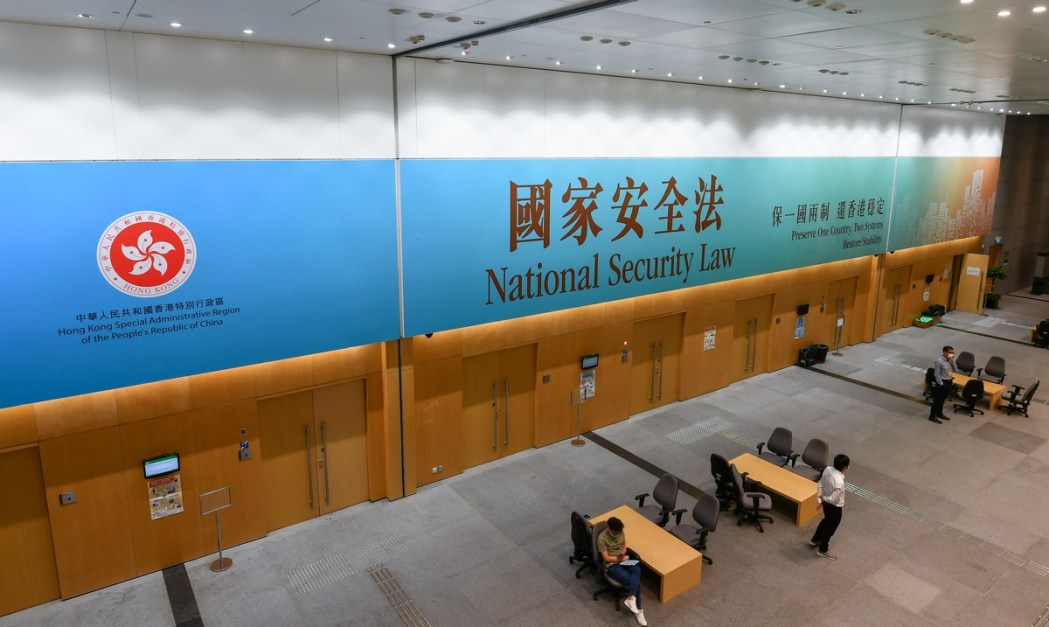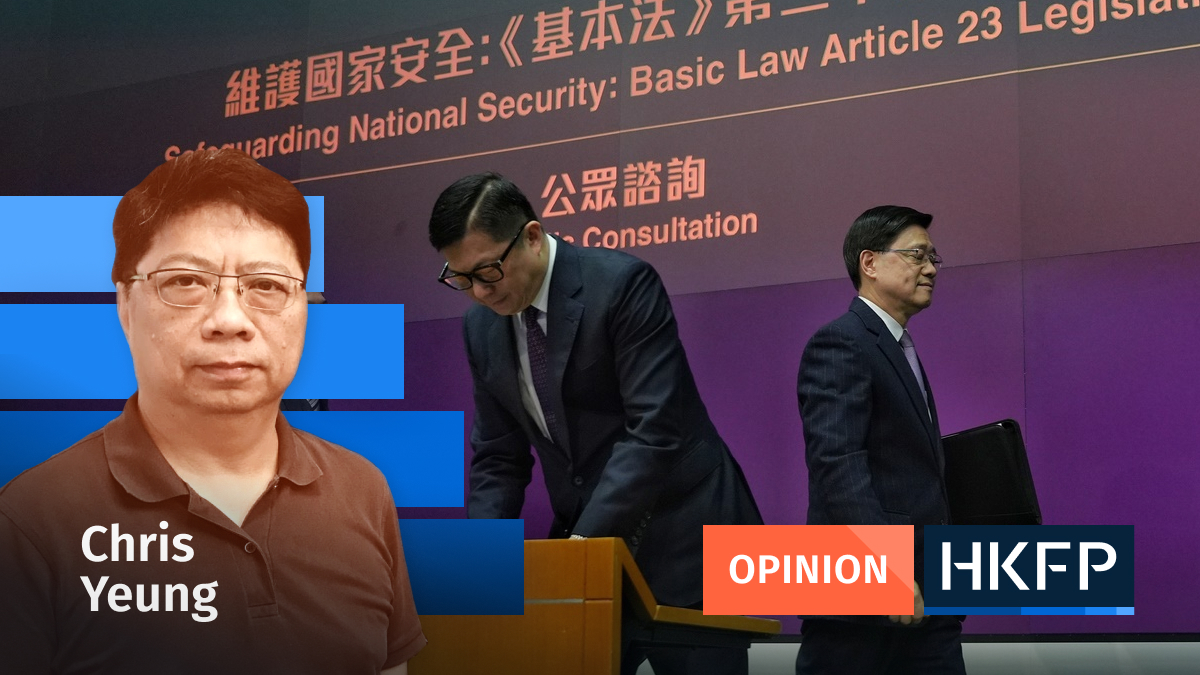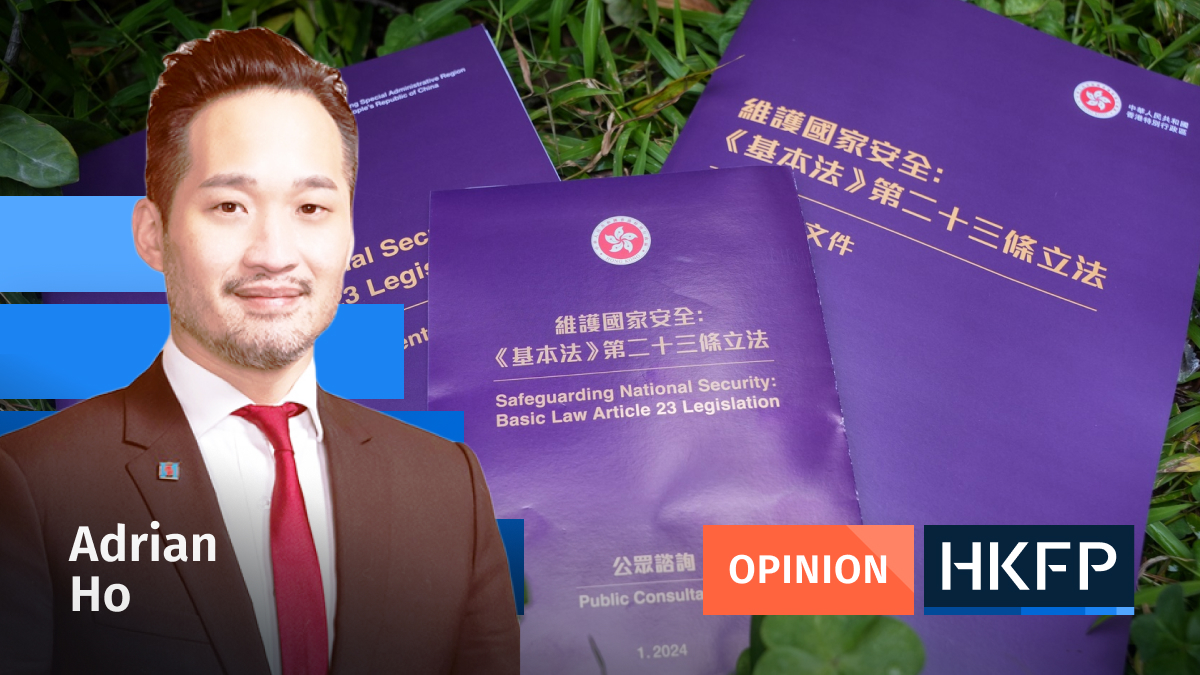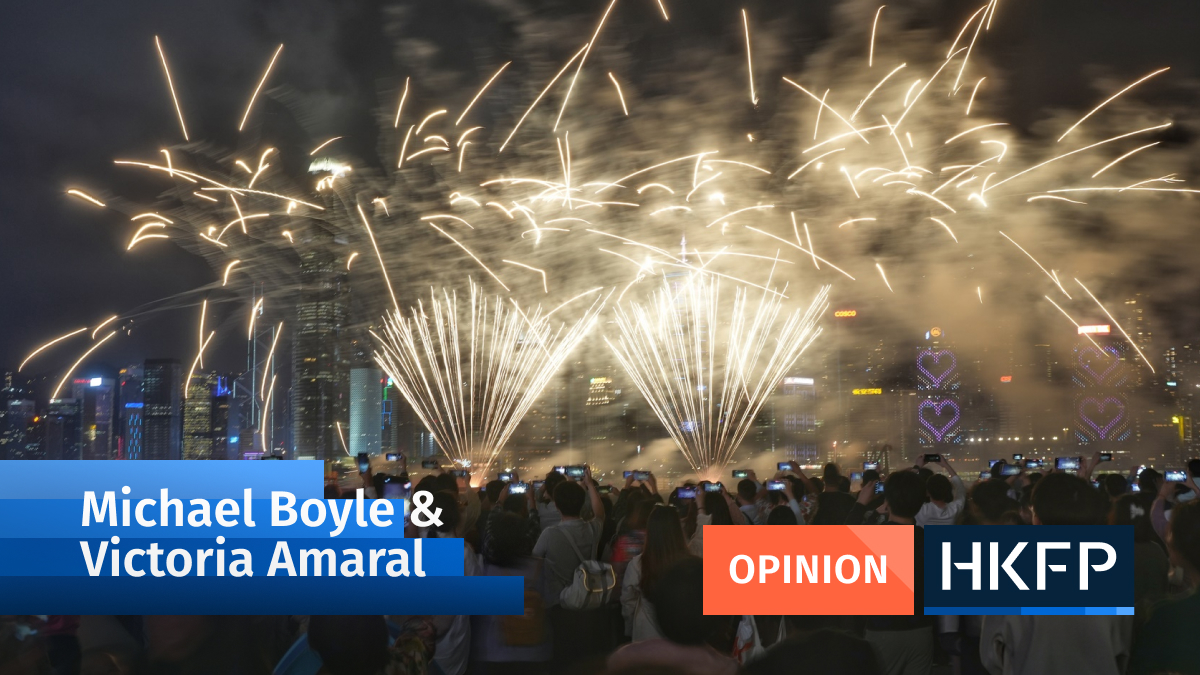Hong Kong on Friday commemorates the 25th anniversary of its Handover from Britain to China. The colonial era lasting more than 150 years came to an end when the last British governor Chris Patten left the city on July 1, 1997 and the era of One Country, Two Systems began.
The policy initiated by Deng Xiaoping was an unprecedented concept to promote the orderly unification of Hong Kong as a Special Administrative Region of China with the mainland.

One Country Two Systems has evolved over the years and I believe it will continue to do so in light of Hong Kong’s current circumstances. Its fundamentals, however, remain intact and it has been working efficiently.
Recent comments by Patten – that “China has ripped up the Joint Declaration and is vengefully and comprehensively trying to remove the freedoms of Hong Kong because it regards them as a threat, not to the security of China but to the ability of the Chinese Communist Party to hang on to power” – come as absolutely no surprise.
The 1984 Sino-British Joint Declaration is the document that detailed the return of Hong Kong to China. Britain’s obligations under it ended when the Handover took place. Patten’s bitterness is nothing more than a feigned sense of nostalgia.
Anti-establishment politicians and groups made numerous futile attempts since 1997 to delegitimise One Country, Two Systems, taking advantage of the inadequacies in our legal and electoral systems regarding national security. They helped engineer a number of political events, ultimately fuelling and contributing to the political upheaval of 2019.

The National Security Law which came into force in 2020 and a revamped electoral system the following year effectively put the One Country, Two Systems policy back on track. Ironically, even though Britain and the rest of the world claim to value national security, they completely disregard the need for Hong Kong to enact its own such law. Their entire emphasis has been on mounting defamation campaigns against China, Hong Kong, and the policy itself.
Since 1997, the foundation and cornerstone of Hong Kong has been the One Country, Two Systems policy honoured by Beijing and allowing Hong Kong people to govern Hong Kong with a high level of autonomy. According to the Basic Law, both the right to free speech and the advancement of democracy are guaranteed.
Political unrest in 2019 was a reminder that the city has made certain missteps in its democratic development and public administration. But thanks to the new electoral system, it has rectified its course and ensured that the political turmoil of that year will not be repeated.
Let’s not ignore the fact that throughout the colonial era, governors were directly nominated and appointed by the UK, and all significant official positions were occupied by Britons. Democracy was never even remotely experienced.

With its open and free economy, low taxation, unrestricted port commerce, and established global financial industry, Hong Kong has made significant strides in retaining its competitiveness under One Country, Two Systems. It also offers a healthy business climate with a level playing field where companies of all sizes can thrive and prosper.
Hong Kong has long been the dominant gateway to China and the epicentre of the world’s offshore renminbi trade. With an effective financial infrastructure that enables us to be the largest global offshore renminbi (RMB) business hub, the city originates and facilitates two thirds of China’s inward and outward direct investment. By offering an array of RMB financial services, it enables people from all over the world to handle such transactions with the mainland.
Things have not always gone smoothly since the handover. Despite its robust and stable financial system, the city’s people suffered during both the 1997 and 2008 financial crises.
During the 1997 Asian financial crisis, George Soros waged speculative attacks on Hong Kong’s currency. The city was able to secure support from China, with its foreign reserves of US$140 billion available to defend against speculative attacks if necessary. The HKSAR government fought a valiant battle against speculators, ultimately stabilising the currency.

Hong Kong experienced a significant fall in property prices, a 2.5 per cent decline in GDP, and a high unemployment rate as a result of the global financial tsunami that the US sub-prime financial crisis unleashed in 2008. Rather than downsizing and migrating capital, local mainland-funded enterprises reinforced the financial industry workforce by hiring personnel during that period.
China’s then-premier Wen Jiabao proposed a 14-step strategy to enhance financial and economic cooperation between China and Hong Kong, including speeding up infrastructure projects in the Pearl River Delta.
These crises proved that China is essential to Hong Kong’s recovery and its ability to overcome devastating events. The One Country, Two Systems policy is essential to preserve Hong Kong’s competitiveness and allow it to forge ahead in the face of adversity.
The Covid-19 pandemic that ravaged the world from late 2019, as well as the political upheaval that same year, put Hong Kong in a precarious situation. With guidance from mainland China and some much-needed support and assistance, our city was yet again able to overcome adversity.

One Country, Two Systems has been the foundation and cornerstone of Hong Kong and given it the tools to overcome adversity.
Our toughest challenge to date was the political turmoil back in 2019, where western critics anticipated the demise of One Country, Two Systems and a full-fledged Chinese intervention. To foster stability and ensure that the policy remains resilient, the National Security Law was enacted.
The 25th anniversary of the Handover has been portrayed by the Western media and other detractors as “the halfway line” for One Country, Two Systems , implying that it has a finite lifespan. In my opinion, there is no justification to terminate such a policy if it proves successful in bringing long-term prosperity and benefits to both China and Hong Kong.
I firmly believe that there are no limits to the opportunities available under the Two Systems as long as we acknowledge and accept the reality of One Country. Happy anniversary to the Hong Kong SAR!
Support HKFP | Policies & Ethics | Error/typo? | Contact Us | Newsletter | Transparency & Annual Report | Apps
| HKFP is an impartial platform & does not necessarily share the views of opinion writers or advertisers. HKFP presents a diversity of views & regularly invites figures across the political spectrum to write for us. Press freedom is guaranteed under the Basic Law, security law, Bill of Rights and Chinese constitution. Opinion pieces aim to point out errors or defects in the government, law or policies, or aim to suggest ideas or alterations via legal means without an intention of hatred, discontent or hostility against the authorities or other communities. |
Help safeguard press freedom & keep HKFP free for all readers by supporting our team

More HKFP OPINION:
HKFP has an impartial stance, transparent funding, and balanced coverage guided by an Ethics Code and Corrections Policy.
Support press freedom & help us surpass 1,000 monthly Patrons: 100% independent, governed by an ethics code & not-for-profit.










